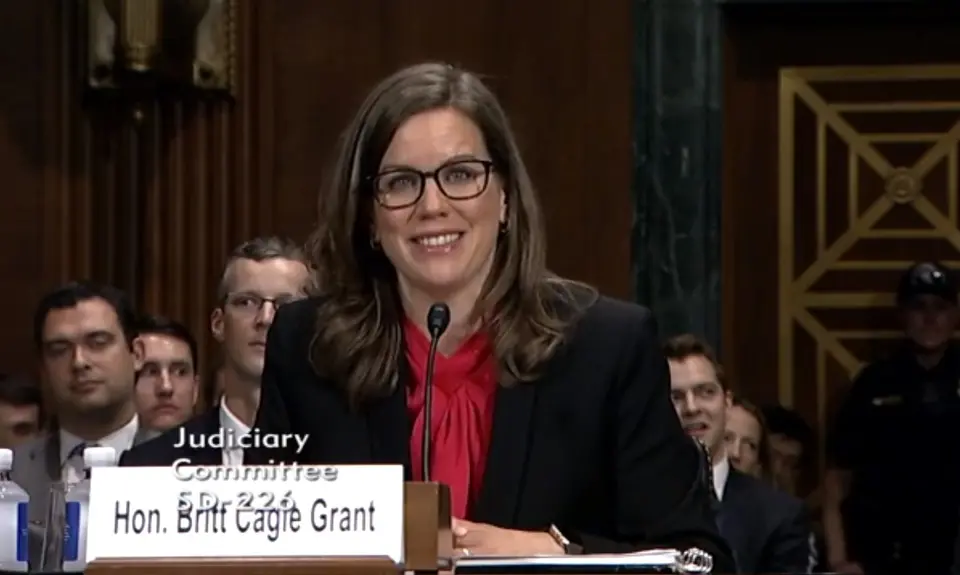“Confirmed Judges, Confirmed Fears” is a blog series documenting the harmful impact of President Trump’s judges on Americans’ rights and liberties. Cases in the series can be found by issue and by judge at this link.
In June 2020, Trump Eleventh Circuit judge Britt Grant cast the deciding vote to reverse the district court ruling that denied qualified immunity for officers who falsified information to obtain a search warrant, detained the plaintiff in violation of her Fourth Amendment rights, and shot and killed her husband. The case is Hooks v. Brewer.
In 2014, David Hooks called the police to report a robbery on his property. A car and several guns were taken. The person who stole the car and guns – Rodney Garrett - turned himself in. When speaking to police, Garrett admitted that he also took from Hook’s garage a scale, money, and a bag. In the bag, he said, was methamphetamines. Garrett denied ever knowing Hooks, but Officer Christopher Brewer was convinced that he had enough information from Garrett to search Hooks’s property.
In the search warrant affidavit, Brewer included Garrett’s statements , as well as information from an investigation Brewer worked on 5 years prior where a man indicated he supplied Hooks with meth. That man’s claim was never corroborated and the police department never opened a file to investigate Hooks.
Shortly before midnight, officers approached Hooks’s home. Teresa, Hooks wife, saw the cars and individuals from the window. She didn’t know the individuals were the police. She thought they were being robbed again. She rushed downstairs to wake up her husband. As officers pounded on the back door, Hooks came out of a bedroom, holding a gun. The police entered the home, “fired shots, killing Hooks after, officers claim, Hooks raised his gun.” Teresa ran into the master bedroom, locked the door, and called her son to report that they were being robbed. She asked her son to contact the police. Moments later, she recognized the sound of police radios and opened the bedroom door. Officer Steve Vertin handcuffed her and Sherriff William Harrell searched her. Teresa Hooks was detained for some time before being released. No drugs were ever found on the property.
Teresa sued the officers in district court. She alleged that the search of her home, the shooting of her husband, and her detention violated her Fourth Amendment rights. In addition, she claimed that the police included false information and left out key facts in the search warrant affidavit, which made the warrant and its execution invalid.
The officers invoked qualified immunity and moved for summary judgment, but the district court denied qualified immunity and the motion. The district court ruled that all of Teresa Hooks’s claims must go to trial.
All of the judges on the panel affirmed the district court’s order as to Brewer, but, in a 2-1 decision they reversed the district court’s qualified immunity decision as to Harrell and Vertin. The majority said that Vertin “did not violate any clearly established law”, so he is entitled to qualified immunity. Officers may temporarily detain occupants of a house while executing a search warrant. As to Harrell, the same rationale applies. The unlawful detention claim fails because Vertin is entitled to qualified immunity.
Judge Adalberto Jordan strongly dissented. He asserted that Teresa’s two-hour detention was “a clear Fourth Amendment violation far outside any narrow exception permitted by Supreme Court precedent. All prolonged detentions must be supported by probable cause.” No search was ever conducted during Ms. Hooks’ detention. After the shooting, Officer Vertin handcuffed Ms. Hooks with metal handcuffs behind her back and had her sit on a patio chair by the pool. Another officer searched Ms. Hooks’ person and found nothing of note. Officers Vertin and Harrell should not have been granted qualified immunity.
